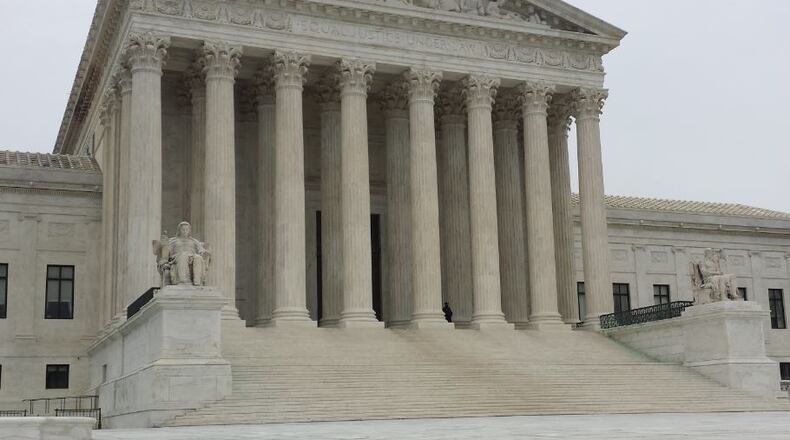The U.S. Supreme Court on Wednesday wades into one of the more controversial policy matters of the Trump Administration, as the Justices will hear arguments on the merits of the revised effort by President Donald Trump to block certain foreign nationals from traveling to the United States, what critics often deride as his "Muslim ban."
Before the Court is the third version of the Trump travel order, which began just a week into his Presidency, as an effort to stop travel to the U.S. by citizens of seven majority-Muslim countries.
After the first two versions were blocked by the courts - this third one would limit visits to the United States by people from Yemen, Syria, Libya, Iran, and Somalia, and slow down the number of refugees accepted into the U.S.
"As President, I must act to protect the security and interests of the United States and its people," Mr. Trump said as he issued the third version of the travel order in September of 2017.
Lower courts have ruled against the Trump plan.
Credit: Jamie Dupree
Credit: Jamie Dupree
The travel order is being challenged by the state of Hawaii, which has tried to use the President's past statements and tweets about the threat of Islamic terrorism against the travel order, which the Supreme Court allowed to take effect while the case was being litigated.
"The arguments against the travel ban come from every corner of our country," says Neal Katyal, who will carry Hawaii's case before the Justices.
"It comes down to who we are as a nation," Katyal wrote.
Interest in the case has been strong, as the line for public seats began forming on Monday outside the U.S. Supreme Court.
The arguments on the Trump travel order come as lower courts are still duking it out over efforts by the President to terminate the DACA program from the Obama Administration - that question is expected to reach the Justices in coming months.
On Tuesday evening, a federal judge in Washington, D.C. became the third to block the President's effort to end DACA, the program which allows younger illegal immigrant "Dreamers" to temporarily stay in the U.S. and avoid deportation proceedings.
"DACA’s rescission was arbitrary and capricious because the Department failed adequately to explain its conclusion that the program was unlawful," wrote Judge John Bates, though he gave the feds 90 days to better explain the decision.
As with the Trump travel order, the President's effort on DACA could be on the docket next term for the Justices.
About the Author



